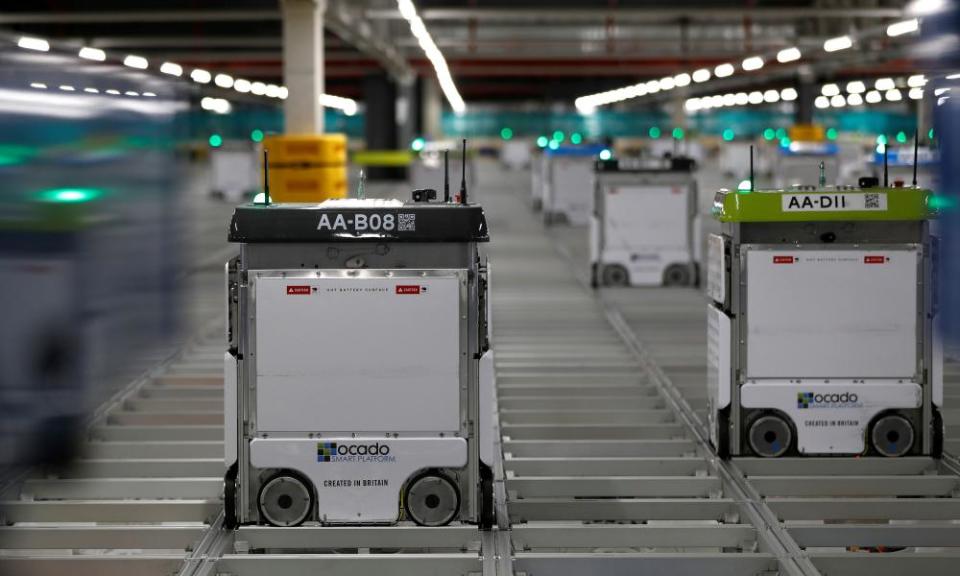Ocado shares fall as it cancels orders after robot fire

Ocado’s share price has sunk to its lowest level in more than a year after it was forced to cancel thousands of orders following a fire caused by a robot collision at one of its warehouses.
Customers concentrated in London and south-east England have had food deliveries cancelled after the fire on Friday at the fulfilment centre in Erith, south-east London.
Orders have been rerouted to warehouses in Hatfield, Hertfordshire, and Dordon, Warwickshire, resulting in delays.
Ocado uses vast warehouses with robots criss-crossing a giant chessboard-style grid layout to sort its orders, rather than relying on human pickers. However, three robots crashed on Friday, causing the fire.
The company’s share price slumped by 4.6% on Monday to 1,720p, down from 1,805p when stock markets closed on Friday evening. That pushed its valuation down to a level last hit in May 2020, during the UK’s first Covid-19 lockdown.
Ocado shares still remain much more expensive than they were before the pandemic, as its expertise in home deliveries became more valuable to feeding the nation. Ocado sales soared by almost a fifth year on year in the six months to the end of May.
However, Ocado’s valuation – £13.5bn before the fire was revealed – has slipped back significantly since the end of January, when it was valued at more than £21bn. Analysts have highlighted high near-term costs as one factor that could weigh on profits, while the easing of restrictions could mean some sales shift back to bricks-and-mortar shops.
It comes shortly after a big adjustment for the company, as it ended a longstanding partnership with Waitrose and started selling Marks & Spencer products in September.
It is the second major fire involving its robots, after its Andover facility burned down in February 2019. Ocado eventually revealed that the cost of the Andover fire was more than £100m.
In a statement at the weekend Ocado said the Erith fire had only damaged 1% of the grid, although as many as 100 firefighters from the London fire brigade also attended the scene. However, it is understood that no deliveries were leaving the warehouse on Monday afternoon.
A spokesman declined to give any timeline on when the warehouse would be back in operation, beyond a statement that it expected to resume deliveries “within the coming week”.
Ocado said: “Aside from some residual smoke smell, the vast majority of the [customer fulfilment centre] is in good condition. While we expect some disruption to operations, we are working to restore normal service as soon as possible.”

 Yahoo Finance
Yahoo Finance 